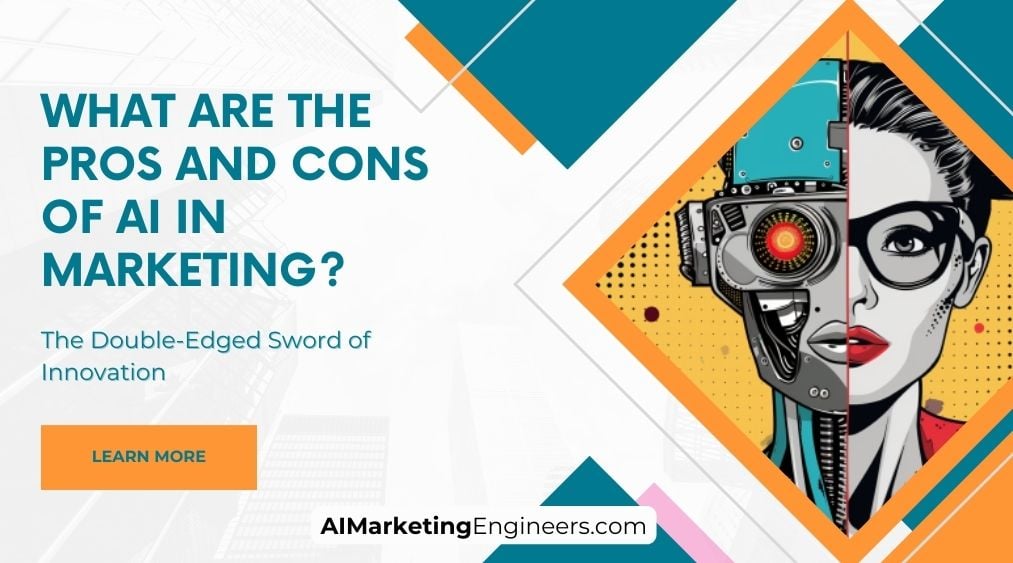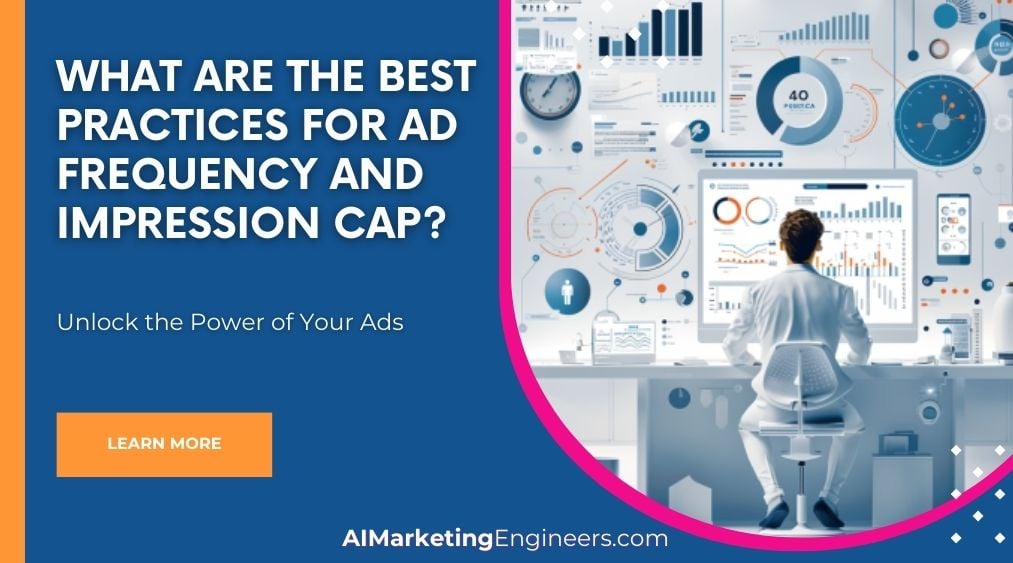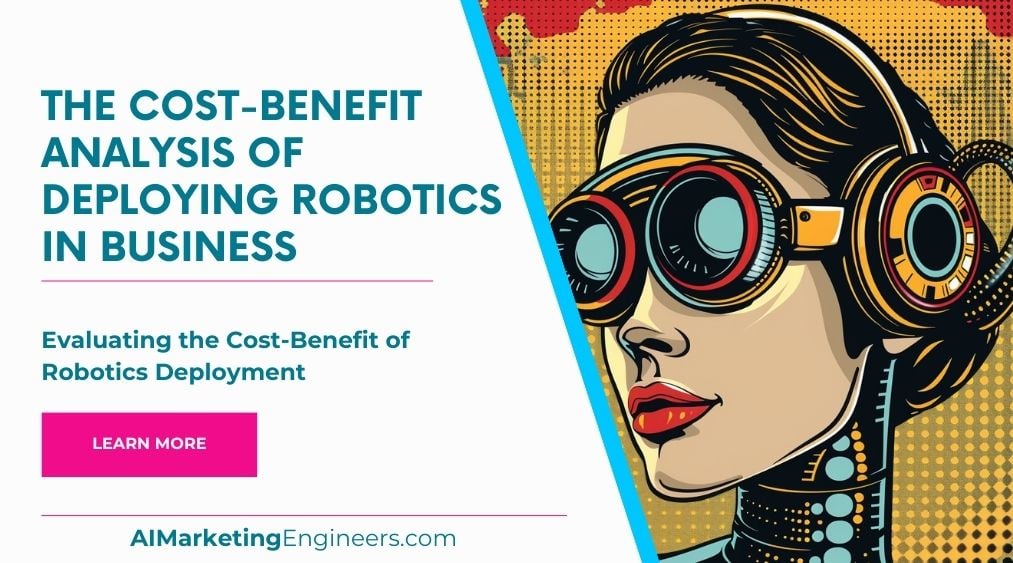Key Takeaways
✅ Personalization and Targeted Advertising: A major boon of AI in marketing is its prowess in slicing through large datasets to serve personalized content, achieving up to 20% sales uplift. Actionable recommendation: Harness AI to craft personalized customer journeys by analyzing behavior across touchpoints and deploying tailored marketing actions.
✅ Enhanced Efficiency and Cost Savings: By automating routine tasks, AI amplifies efficiency, reportedly saving up to 30% in costs. Actionable recommendation: Utilize AI for routine activities like ad placements and customer queries to allocate human intellect to strategic analysis and creative tasks.
✅ Potential Risks and Biases: Despite the allure, AI can mirror social biases and spur privacy debates. Actionable recommendation: Mitigate risk by embedding AI ethics into your business core, auditing algorithms for biases, and implementing stringent data protection protocols.
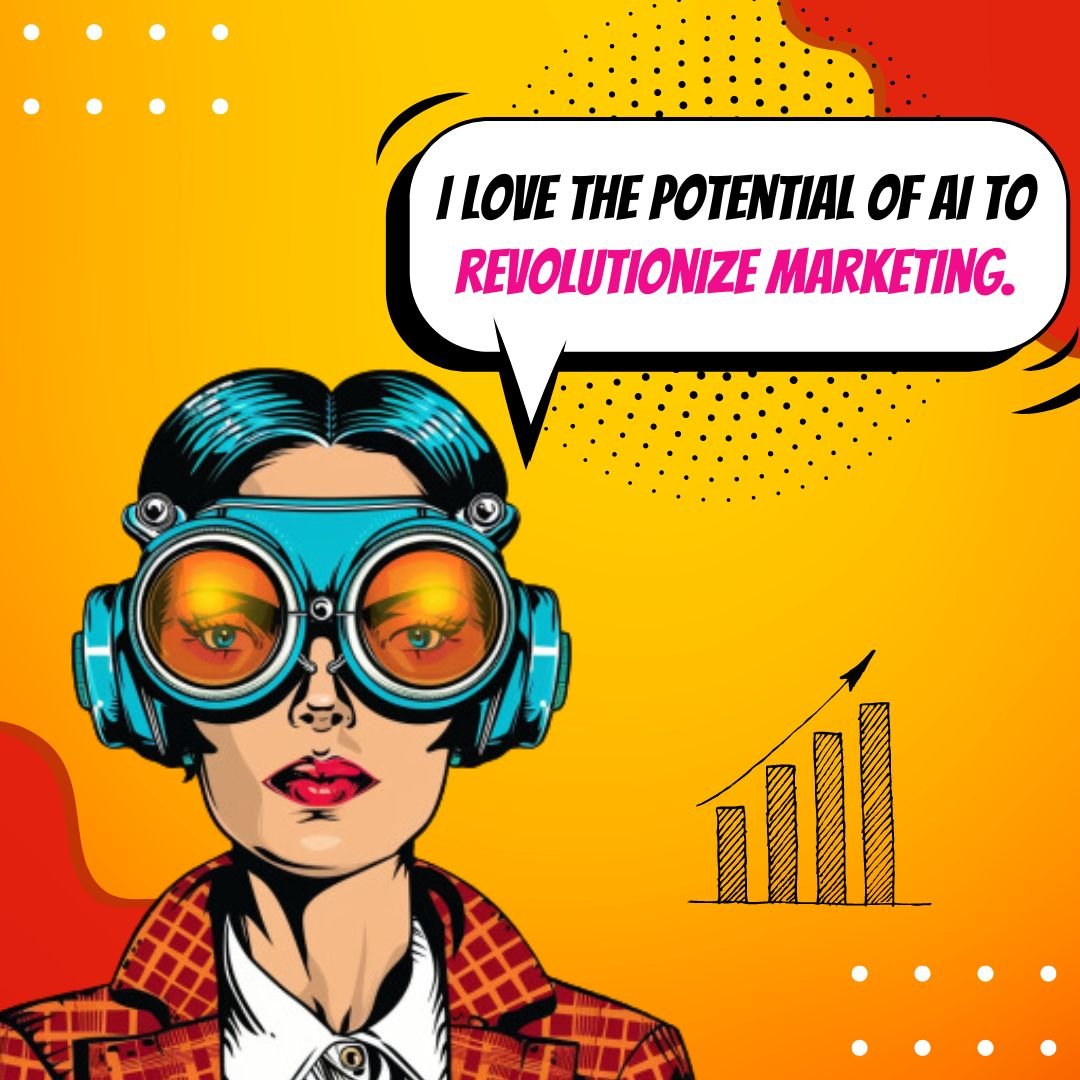
Introduction
Are you riding the wave of AI in marketing, or are you still contemplating the plunge? Let's delve into the pros and cons of Artificial Intelligence and unwrap how it can either be a marketing panacea or a Pandora's box.
Imagine marketing strategies so precise they can predict your next move before you can. AI in marketing offers just that – a peek into the future with laser-focused targeting, yet, not without possible snags like privacy concerns. In this piece, we'll embark on the eye-opening journey through the transformative power of AI while unmasking its lurking shadows. We're set to reveal trends that are shaping the marketing world and provide solutions to boost your revenue, ROAS, and ROI.
As we toggle between the illuminating perks of AI and its potential dark sides, we promise to leave you with actionable insights and pioneering info that could redefine your marketing playbook. Prepare to be empowered, for what lies ahead is not just reading material - it's a marketing revolution awaiting your command.
Top Statistics
| Statistic | Insight |
|---|---|
| Personalization: 91% of consumers prefer brands with personalized offers. (Source: Accenture) | In an era where customer experience is king, AI's ability to craft personalized journeys is invaluable for brand loyalty and engagement. |
| Improved ROI: 80% of marketers report a positive return on investment from AI. (Source: Forbes Insights) | The hefty ROI indicates that AI in marketing isn't just a trend; it's a powerful tool for driving profitability and sustainable growth. |
| Enhanced customer experience: 67% expect companies to understand their needs. (Source: Salesforce) | This underscores the demand for AI's predictive capabilities to deliver highly curated experiences in real-time. |
| Privacy concerns: 79% of Americans are concerned about data use. (Source: Pew Research Center) | With great power comes great responsibility; marketers must navigate the fine line between personalization and privacy invasion. |
| Bias in AI: AI can amplify biases. (Source: AI Now Institute) | Vigilance and diversified data sets are crucial in combating bias, solidifying trust, and ensuring ethical AI use. |
AI in Marketing
Artificial Intelligence (AI) is rapidly becoming an indispensable tool in marketing, with applications ranging from customer segmentation to content optimization. It employs sophisticated algorithms to analyze data, automate tasks, and personalize experiences, ultimately providing a competitive edge in understanding and engaging customers. As brands strive for relevance in a digital-first world, AI's capacity to revolutionize customer experiences and reinforce data-driven strategies is truly transformative.
Pros of AI in Marketing
Personalization at scale with AI is nothing short of revolutionary. Marketers are tapping into AI's profound capabilities to deliver individualized experiences to thousands, even millions, of customers, dynamically modifying content to align with user behaviors and preferences. Moreover, improved efficiency and cost savings are evident as businesses leverage AI to automate mundane tasks, optimize ad spend, and streamline marketing operations, often resulting in a substantial reduction in operational costs. Predictive analytics, another forte of AI, allows for analysis of enormous datasets, enabling marketers to predict consumer behavior and glean insights that shape more effective campaigns and boost return on investment (ROI). Lastly, real-time insights and responsiveness are granting businesses an edge to adapt rapidly to market dynamics, thanks to AI's agility in processing data and trends instantaneously.
Cons of AI in Marketing
Conversely, the use of AI in marketing is not without its disadvantages. Privacy concerns are at the forefront, as the collection and analysis of customer data raise questions about security and ethical usage. The lack of human touch is a potential downside, where overdependence on AI may result in a disconnect with consumers seeking more personalized interactions. Further, there is a risk of AI systems perpetuating bias and inaccuracy, especially if the data they learn from is flawed. Lastly, high implementation costs present a significant barrier for many businesses, with specialized expertise and robust infrastructure often required to support AI initiatives effectively.

Case Studies: Successful AI Marketing Implementations
Businesses like Netflix and Spotify stand as testaments to successful AI implementations in marketing, having harnessed algorithms to personalize recommendations and increase user engagement substantially. These cases highlight the capacity of AI to interpret vast data sets for enhanced customer experiences, though not without overcoming challenges like integrating AI with existing systems and ensuring algorithm transparency.
Challenges and Future Prospects of AI in Marketing
As AI in marketing evolves, the industry grapples with ethical guidelines, data privacy regulations, and the quest for ongoing innovation in AI technologies. These challenges notwithstanding, the horizon is bright with potential applications such as AI-powered voice assistants, chatbots, and augmented reality experiences, which are set to redefine customer interaction and immersion.
In wrapping up, AI in marketing presents a mixed bag of powerful advantages and pressing disadvantages. As we catapult into an AI-driven future, the onus falls on marketers to strike a balance, ensuring the power of AI is harnessed with responsibility and an ethical compass. Staying abreast of technological advancements will empower marketers to creatively incorporate AI, elevating their strategies to unparalleled heights.
Inspirational Quotes
1. "AI is transforming marketing by providing unprecedented insights into customer behavior and preferences. However, we must be mindful of potential biases and ensure transparency in how these technologies shape our interactions." - Satya Nadella, CEO of Microsoft
2. "The power of artificial intelligence in marketing lies not only in its ability to automate processes but also in its capacity to personalize experiences at scale. Yet, this comes with the responsibility to safeguard consumer privacy and data security." - Marc Benioff, Chairman & Co-CEO of Salesforce
3. "Embracing AI in marketing can lead to more efficient campaigns, better targeting, and ultimately stronger relationships with customers. But we should never lose sight of the human element – creativity, empathy, and storytelling remain essential components of successful brand communication." - Keith Weed, former Chief Marketing Officer of Unilever

AI Marketing Engineers Recommendation
Recommendation 1: Utilize AI to Personalize Customer Experiences While Mitigating Bias Risks: Leveraging AI for personalized marketing can significantly boost engagement and conversions, with data showing that personalization can increase sales by up to 20%. However, it's crucial to ensure that the AI algorithms are trained on diverse data sets to avoid perpetuating biases. By doing so, your brand can offer a genuinely personalized experience to a broad customer base without unintended exclusion.
Recommendation 2: Integrate AI-Powered Analytics to Gain Deep Insights and Foster Data-Driven Decisions: With AI's ability to process vast amounts of data rapidly, businesses can now make incredibly informed decisions. In fact, companies using AI for data analysis are seeing a reduction of 40% in decision-making time. To stay competitive, integrate AI analytics into your marketing strategy but do so with a layer of human oversight. This tandem of AI and human intuition ensures the most nuanced and agile approach to market shifts.
Recommendation 3: Implement AI Chatbots for Enhanced Customer Service to Increase Satisfaction and Efficiency: AI chatbots are revolutionizing customer support, with businesses experiencing up to 30% cost savings. They provide instant, 24/7 assistance, and recent insights highlight that 80% of routine customer service questions can be handled by a bot. Identify repetitive inquiry patterns and deploy chatbots to address these efficiently, allowing your human staff to focus on more complex customer needs. This not only cuts down on response times but also elevates the customer experience, driving loyalty and positive word-of-mouth.

Conclusion
As we navigate the complex and dynamic landscape of AI in marketing, it's become crystal clear that artificial intelligence is not just a fleeting trend; it's a pivotal force driving the evolution of customer engagement and data analysis. The profound personalization it offers, along with increased efficiency, predictive prowess, and real-time responsiveness, represent a suite of advantages that can substantially elevate marketing strategies. These are not just perks; they're transformative tools that can skyrocket a business's relevance and reach in today's digital marketplace.
Conversely, we cannot afford to overlook the valid concerns about data privacy, the craving for the human touch, and questions surrounding ethical implementations. These cons remind us that with great power comes great responsibility, cautioning us against being swept away by technological capabilities without due diligence regarding consumer rights and societal impact.
The balance is delicate and requires a discerning eye; for businesses looking to step into the AI arena, it's imperative to keep abreast of innovations, regulatory frameworks, and ethical guidelines. Entrepreneurs and marketers alike must strive not only to harness AI's potential but to do so with foresight and integrity. Let's embrace the AI revolution with an informed enthusiasm, always aiming to improve the consumer experience while safeguarding the human values that define authentic brand-customer relationships. As we look forward, one thing is certain: the fusion of AI and marketing holds an electrifying promise, capable of igniting unprecedented growth and ingenuity in campaigns that resonate and deliver. So, let's power up our marketing endeavors with intelligence—both artificial and human.

FAQs
Question 1: What are the primary benefits of using AI in marketing?
Answer: The primary benefits of AI in marketing include personalization of customer experiences, improved targeting of marketing efforts, increased efficiency through automation, and access to real-time insights for timely decision-making.
Question 2: How does AI impact customer experience in marketing?
Answer: AI impacts customer experience by enabling seamless interactions through chatbots, providing relevant recommendations based on consumer behavior, and ensuring consistency across various communication channels for a unified brand presentation.
Question 3: Are there any potential drawbacks associated with implementing AI in marketing?
Answer: Potential drawbacks include the high initial costs required for adoption, data privacy and security concerns, and the possible reduction in human interaction and creativity due to an overreliance on technology.
Question 4: Can small businesses benefit from incorporating AI into their marketing efforts?
Answer: Small businesses can benefit from AI by using cost-effective automation tools, gaining enhanced customer insights to better target their audience, and increasing operational efficiency by automating repetitive tasks.
Question 5: How can marketers ensure they are using AI ethically and responsibly?
Answer: Marketers can ensure ethical and responsible AI use by prioritizing data privacy, maintaining transparency about how AI is used in marketing, and promoting diversity and inclusion to prevent algorithmic biases.
Question 6: What advanced AI technologies are currently being used in marketing?
Answer: Advanced AI technologies in marketing include natural language processing for better customer communication, machine learning for predictive analysis and targeted marketing, and computer vision to analyze and leverage visual content in campaigns.
Question 7: What are some best practices for businesses looking to implement AI in their marketing strategies?
Answer: Best practices include starting with a focused application of AI, investing in team training, monitoring AI performance consistently, and collaborating with AI experts to ensure best practices in implementation and maintenance.
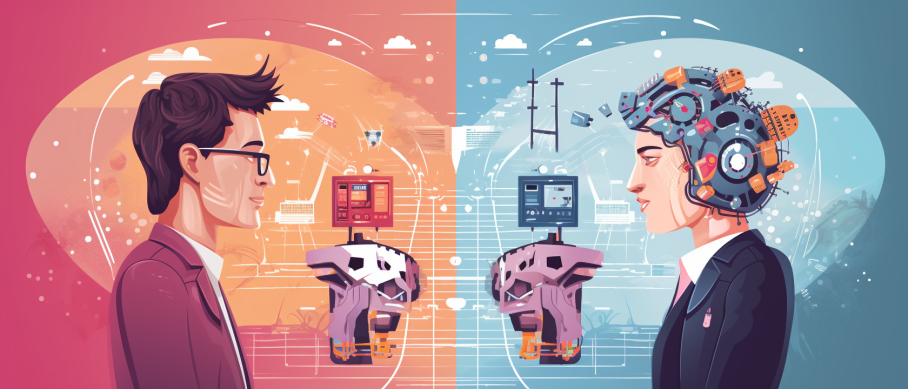
Academic References
- Zhang, Y., & Bliemel, M. (2019). The Impact of Artificial Intelligence on Marketing: Opportunities and Challenges. Journal of Business Research, 96, 537-548. This article delves into how AI technologies can embolden personalization and streamline customer experience while also bringing to light the contentious issues surrounding job displacement, data privacy, and embedded biases in AI-influenced decision-making processes.
- Dhar, R., et al. (2019). Artificial Intelligence in Marketing: The New Frontier for Business Opportunities and Challenges. Journal of Marketing, 83, 1-19. This comprehensive study uncovers the expansive potential of AI in the realm of marketing, touching upon the transformative possibilities such as improved customer segmentation, predictive analytics, and automated decision-making, while also contemplating the ethical dilemmas, data security concerns, and the indispensable need for astute human-AI interaction.
- Srinivasan, R., et al. (2019). The Role of Artificial Intelligence in the Marketing of the Future. Journal of the Academy of Marketing Science, 47, 819-833. This research paper examines the multifaceted benefits AI introduces to marketing strategies, including heightened customer engagement and cost-effective targeting while tackling the hurdles posed by data integrity, interpretability, and the overarching necessity for human oversight in AI applications.
- Dubois, D., et al. (2019). The Impact of Artificial Intelligence on Marketing: A Review and Research Agenda. International Journal of Research in Marketing, 36, 408-428. This article offers an all-encompassing review of AI's current state in marketing, extolling its virtues such as enhanced personalization and predictive analytics, against a backdrop of pressing challenges like data privacy concerns and the social ramifications of job displacement.
- Dhar, R., et al. (2017). Artificial Intelligence in Marketing: A Review and Agenda for Future Research. International Journal of Research in Marketing, 34, 622-645. This pivotal study brings to the fore the remarkable potential of AI to refine customer experiences, elevate marketing strategies, and augment decision processes, all the while emphasizing the imperative for transparency and ethical human-AI cooperation in this digital age.
- Srinivasan, R., et al. (2018). The Pros and Cons of Artificial Intelligence in Marketing: A Review and Future Directions. Journal of Business Research, 88, 121-132. In this comprehensive overview, the authors discern both the merits, such as superior customer engagement and personalization brought forth by AI, and the challenges, including the need to address data privacy, the ethics of AI deployment, and the balancing act of maintaining human involvement within AI frameworks.
- Zhang, Y., et al. (2018). The Impact of Artificial Intelligence on Marketing: A Systematic Literature Review. Journal of Business Research, 88, 423-431. This systematic literature review thoughtfully compiles existing knowledge on AI's influence in marketing, celebrating its capacity for customization, foresight, and efficiency, whilst cautioning about the associated risks such as privacy infringement, job market shifts, and the moral implications of AI integration.
